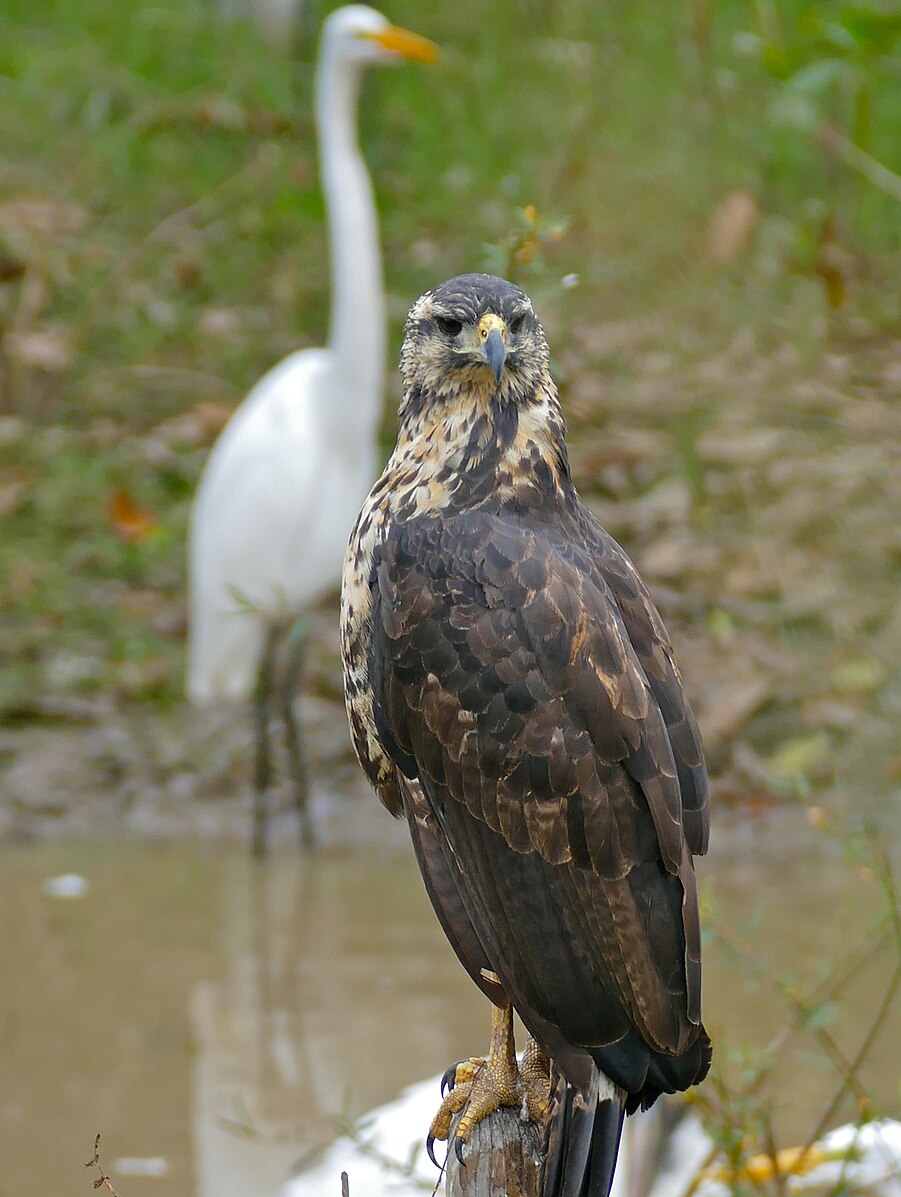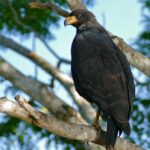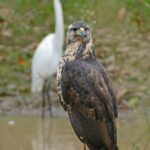Great black hawks, also known as Buteogallus urubitinga, are birds of prey that are native to the Americas. They are known to have a varied diet, which includes small mammals, reptiles, and birds. Rabbits, being small mammals, are definitely on the menu for great black hawks.
Do Great Black Hawks Eat Rabbits?
Yes, great black hawks do eat rabbits. These birds of prey are opportunistic feeders, which means they will consume whatever prey is available and easy to catch. Rabbits are a good source of protein and nutrients for great black hawks, and they have the strength and agility to capture and carry these small mammals.
Hunting Behavior of Great Black Hawks
 Image source: Great Black Hawk by Bernard DUPONT
Image source: Great Black Hawk by Bernard DUPONT
Great black hawks have excellent eyesight and hearing, which allows them to locate their prey from a distance. Once they have spotted a potential target, they use their sharp talons to capture and kill it. These birds of prey are strong fliers and can carry prey that is quite large in relation to their own body size.
Prey Preferences of Great Black Hawks
While rabbits are a part of the great black hawk’s diet, they are not the only prey these birds of prey consume. Great black hawks are known to feed on a variety of small mammals, reptiles, and birds, including:
- Small rodents (e.g., mice, voles, squirrels)
- Snakes and lizards
- Small birds (e.g., songbirds, doves)
- Amphibians (e.g., frogs, toads)
- Insects (e.g., grasshoppers, beetles)
The specific prey that a great black hawk will target depends on the availability and abundance of different species in its habitat.
Habitat and Range of Great Black Hawks
Great black hawks are found throughout the Americas, from Mexico to Argentina. They prefer to live in tropical and subtropical forests, as well as in wetland areas such as marshes and swamps. These birds of prey are known to be adaptable and can also be found in more urban areas, as long as there is sufficient prey available.
Nesting and Breeding Habits
Great black hawks build large stick nests high up in the trees, often reusing the same nest year after year. They typically lay 1-3 eggs, which both the male and female take turns incubating. The chicks hatch after about 35-40 days and are cared for by both parents until they are able to fend for themselves, which can take several months.
Conservation Status of Great Black Hawks
The great black hawk is classified as a species of Least Concern by the International Union for Conservation of Nature (IUCN). However, their populations are threatened by habitat loss and degradation, as well as hunting and persecution by humans in some areas.
Threats to Great Black Hawks
The main threats to great black hawks include:
- Deforestation and habitat loss: The clearing of tropical and subtropical forests for agriculture, logging, and urban development has reduced the available habitat for these birds of prey.
- Hunting and persecution: In some regions, great black hawks are hunted for their feathers or killed due to perceived threats to livestock or poultry.
- Pesticide and pollution: Exposure to pesticides and other environmental pollutants can have negative impacts on the health and survival of great black hawks.
Conservation efforts, such as habitat protection and public education, are important for ensuring the long-term survival of this species.
Conclusion
In conclusion, great black hawks do eat rabbits as part of their varied diet. These birds of prey are opportunistic feeders with excellent hunting skills, and they are able to capture and consume a wide range of small mammals, reptiles, and birds. While rabbits are a viable food source for great black hawks, they are not the only prey these birds of prey target. Understanding the hunting behavior and dietary preferences of great black hawks is important for their conservation and management.
References:
– The Raptor Trust. Hawk Facts. Retrieved from https://theraptortrust.org/bird-resources/bird-facts/hawk-facts/
– Great Swamp Watershed Association. Did You Know? About Red-tailed Hawks. Retrieved from https://www.greatswamp.org/did-you-know-about-red-tailed-hawks/
– National Audubon Society. Why Red-Tailed Hawks Are Not Picky Eaters. Retrieved from https://www.audubon.org/news/why-red-tailed-hawks-are-not-picky-eaters


